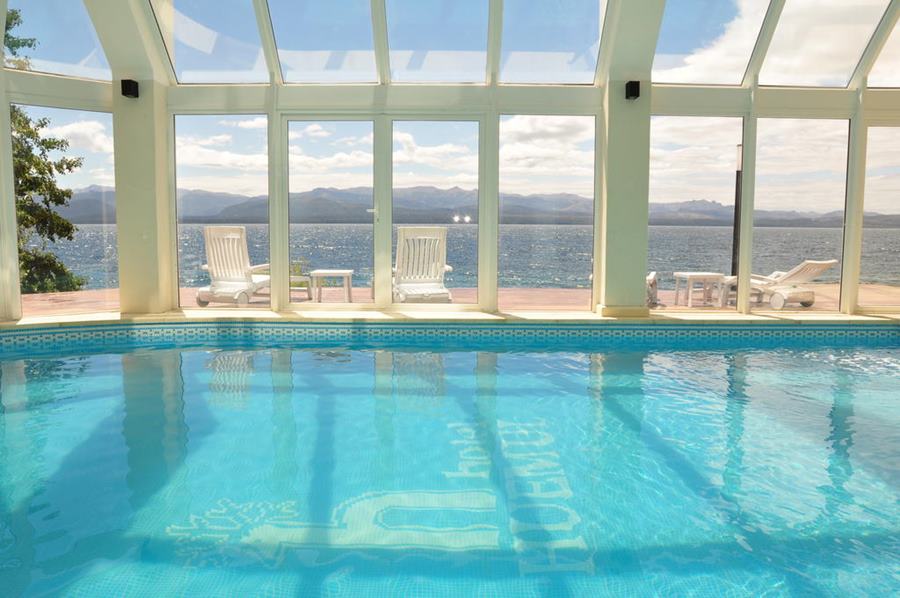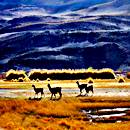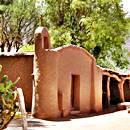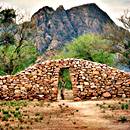What you should know about booking a hotel
Hotels can make or break a vacation
So you have your plan more or less defined, you will be driving along Ruta 40 visiting some of its most spectacular spots: Salta with the Quebrada de las Flechas, the Garganta del Diablo or the Salinas Grandes, or maybe Patagonia: Bariloche, the Seven Lakes Road or the Perito Moreno Glacier.
Now you must define which hotels you will be staying at, and this page will give you some handy tips.
Five Tips on Hotel Reservations
1. Should I book in advance or have an open plan?
It all depends on the type of trip you have organized. A flexible journey is one where you don’t know where you will be stopping at the end of each day. You have an open plan and stop at first available hotel at the end of the day.
This is a good idea when there are plenty of towns along the way and each of them has a few hotels to choose from.
But if the towns are actually small villages with maybe one or two hotels, and they are one hour away from the next village, if these hotels are fully booked you will find yourself driving an extra hour instead of taking a shower and relaxing after a long day’s drive.
We once ran into this problem in Argentina, we stopped at a fairly large town with at least a dozen hotels, but they were all full, with no vacancy. We didn’t know that on that particular Saturday, there was a festival in town! So we drove to the next town, 20 miles away, a small one, with just two hotels. They too were competely booked. A family gathering to celebrate the 90th birthday of grandma had brought a large family together and left no rooms for anyone else. The situation was serious, and we had to drive for another 90 minutes to the next city to find a room.
A visit to Canada on Labor Day weekend, with very tight booking options taught us to take a good look at the calendar when traveling. You should check the long weekends, national holidays, and in South America holidays like Easter and Carnival which can mean many more tourists and travelers than usual.
On the other hand, a rigid schedule can be a problem too: it ties you to a timetable (you have to be at a given hotel in a certain city on a given date) which takes away some of the fun of an open schedule trip.
The ideal situation is to have the best of both worlds: keep your journey flexible in places where you know you won’t have problems in securing a room and booking your rooms in advance in places where you can expect more travelers and a higher demand for rooms.
Larger towns have more hotels and allow you to be flexible, but some destinations with plenty of hotels can fill up during peak travel season (Bariloche in Patagonia during summer and winter holidays period is an example).
You can check the potential lodging places in the different towns along your itinerary, where you may want to stopover during your trip. See how many hotels are available, and how far is the next town. Take note of the hotels so that if you want to stop there you can find them quickly.
2. Special Requests
Do you have special needs? A wheel chair accessible room? Do you want a King-size or two single beds? A room for three? Smoking or non-smoking? Are pets allowed?
You should confirm exactly what you are booking before clicking the "book now" button on the online booking site.
Is breakfast included? Wi-Fi? Is there parking available on site? Airport shuttle? Do some research now and avoid problems later.
When you book a room online, you can use the "comments" box to add any specific comments: late arrival, late check-out, etc.
Print a copy of your confirmation just in case.

3. Check where the hotel is located
Is it in the downtown area or in a chic neighborhood? Are there good restaurants within walking distance? Or is it in a dangerous part of town?
Have a look at the map in the online booking site. Check it out in Google Maps where you can get a Street View and also find dining places close to the hotel.
Small towns are not usually a problem. In larger cities it can be an issue. Try to find hotels in the nice "tourist" districts of cities like Mendoza or Salta. However, as you have a car, you can also choose a hotel in a scenic district and drive into the city to dine or to visit it.
4. Check the Reviews
A lot has been written recently about fake guest reviews and ratings. However you should be diligent and check the photographs of the hotel, take a look at the rooms, the bed, lobby, bathroom, pool and ammenities. If it seems ok, then read the reviews to see if things are as good as they appear in the photos.
Guests can give you more information about the hotel: maybe it is dirty, noisy, the staff is rude, the rooms smaller than they look like in the pictures...
Use common sense, some people are never satisfied, others have less expectations so try to grasp the facts not the subjective opinions.
If you stay at the hotel, don’t forget to submit your photos and review to help other guests, www.Booking.com and TripAdvisor are two good places to publish reviews.
5. Compare prices and shop around
Staying at a busy destination over the weekend may mean higher room rates than a mid-week stopover. Perhaps you can scheule your trip to hit costly destinations during low-rate days.
Online booking engines may prompt you to act hastily with red lettered banners proclaiming "only 2 rooms left" or "This hotel has been booked 5 times today", they may also advertise a room as having the "Best Price" or a "Special Discount" but this doesn’t mean that it is cheaper than other similar hotels in town.
Compare hotels and see if they offer the same services (free wi-fi, breakfast, parking).
See what benefits your Hotel Rewards membership may give you, though in Argentina, large hotel groups usually focus on large cities (Buenos Aires, Mendoza, Córdoba), you will rarely find an Ibis Hotel or a Days Inn in the interior of the country.
Price Match Guarantee
Booking.com has a "Price Match Guarantee": You can claim a refund for the difference if you happen to find your reservation cheaper on another website. Read the details
Bonus Tip
Non-refundable bookings
As we mentioned above, a road trip is dynamic and you should try to remain flexible: you may decide to stay a bit longer at one place or the unexpected happens and you cannot get to your hotel that night and stop somewhere else.
You should have some flexibility in your reservations.
Some hotels offer special cheap rates but they are fixed. If you do not show up on time you forfeit your deposti, the room will be charged to your credit card without refunds.
A no show means that you will pay for the room that you booked even though you didn’t use it.
Sometimes trying to save some pennies can cost you many dollars if you try to cancel the booking. Read the small print when you book your hotel: check out the site’s cancellation policy before confirming your reservation.
This is why we offer www.Booking.com because in most cases you can book but don’t pay unless you actually stay at the hotel.
Booking your Hotel Online
The hotel booking process is really simple, follow these steps and you will avoid surprises:
- Choose your Destination. You should have a clear idea of where you will be spending the night.
- Look for a Hotel: Researching a Hotel. This is usually done via some online booking company. There are quite a few of them. On our site, we offer
www.Booking.com.
As mentioned above, compare different hotels, see what they look like, check the pricing, and what they offer, bed types, room availability and location. Browse the photographs. Make a pre-selection. - Do your homework: Check the Reviews.
- Book. Make your reservation. Double check the date, and the location (see the tips above).
Print your booking and take it with you on your trip. Enter the address into your GPS or Smartphone, it will make it easier to get to the hotel.
Now you can check the Hotels... and pick your choice
Hotels & Accommodation along Ruta 40
Find your room in each province along the highway
Find Lodging
>> Hotels in City of Salta
Hotels in each province along Ruta 40
Must-See stops near Ruta 40
>> Find your room in Salta Province







